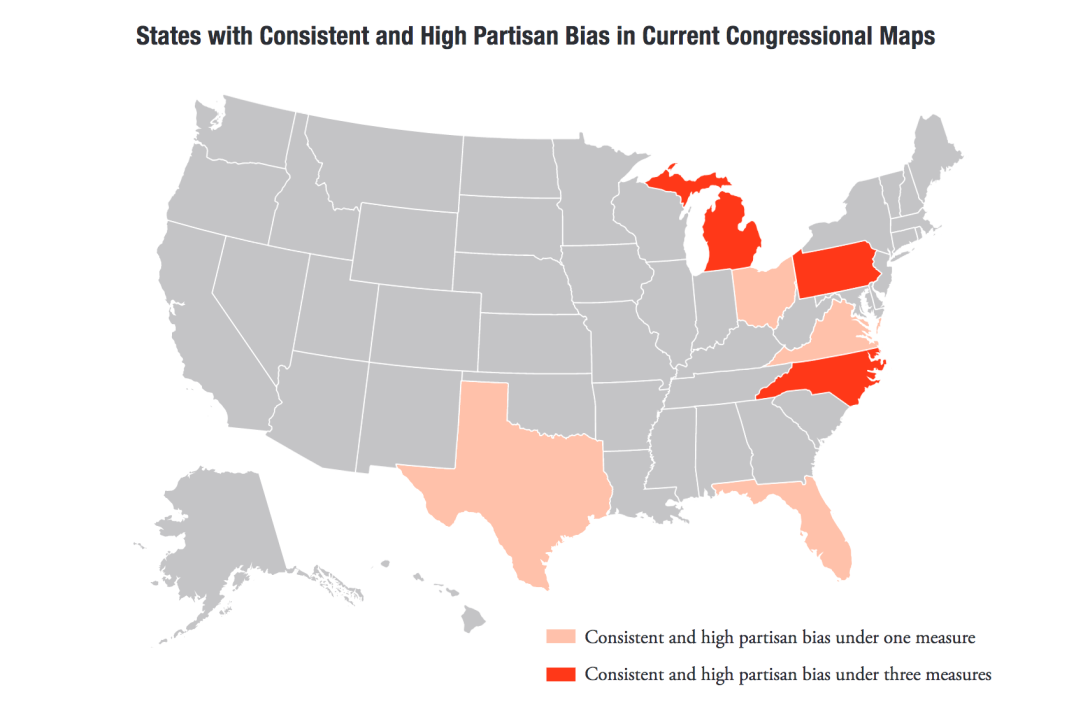INSTITUTE INDEX: Making the connection between racial and partisan gerrymandering

Map is from the report "Extreme Maps" by the Brennan Center for Justice.
Date on which the U.S. Supreme Court affirmed a lower court ruling that the congressional districts drawn by North Carolina's Republican-controlled legislature in 2011 involved unconstitutional racial gerrymanders meant to dilute the power of black voters: 5/22/2017
Of the stricken map's 13 congressional districts, number that were controlled by Republicans: 10
According to elections law expert Rick Hasen, number of "bombshells" in the decision's footnotes in which the Court said that in places like the U.S. South where race and party overlap to a high degree — what's known as "conjoined polarization" — they can be treated as proxies for one another: 2
Number of additional successful racial gerrymandering cases in the South and elsewhere the Supreme Court's ruling will lead to, according to Hasen: "many more"
Year in which North Carolina adopted a new congressional district map in response to the lower court's ruling in the case, with lawmakers explicitly calling it a partisan gerrymander: 2016
Year in which a lawsuit was filed over that map, calling it "one of the worst partisan gerrymanders in modern American history," with that case now awaiting action at the U.S. Supreme Court: 2016
Of the 13 districts in North Carolina's new congressional map, number that were still held by Republicans after last year's election: 10
If North Carolina's congressional seats were apportioned based on the share of votes each party's candidates got in last year's election, number fewer seats Republicans would hold: 3
In the three states with the most extremely partisan congressional districts — North Carolina, Pennsylvania and Michigan — number of extra Republican seats accounted for by the distortion in the maps in each of the three elections since 2011: 7 to 10
In the 26 states that account for 85 percent of congressional districts, net benefit in terms of seats that Republicans derive from partisan bias in the current Congress: 16 to 17
Of the seven states with the greatest Republican bias in congressional seats, number in the South: 4*
Of the seven states with high partisan bias, number where a single political party had sole control of redistricting: 7
Date on which a trial is set to begin in Greensboro, North Carolina, over whether the state's new congressional maps are unconstitutionally partisan: 6/26/2017
* Florida, Michigan, North Carolina, Ohio, Pennsylvania, Texas and Virginia.
(Click on figure to go to source.)
Tags
Sue Sturgis
Sue is the former editorial director of Facing South and the Institute for Southern Studies.
